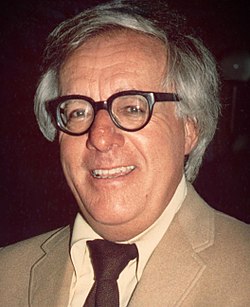Ray Bradbury Quote
Nous sommes les joyeux drilles, les boute-en-train, toi, moi et les autres. Nous faisons front contre la marée de ceux qui veulent plonger le monde dans la désolation en suscitant le conflit entre la théorie et la pensée. Nous avons les doigts accrochés au parapet. Tenons bon. Ne laissons pas le torrent de la mélancolie et de la triste philosophie noyer notre monde. Nous comptons sur toi. Je ne crois pas que tu te rendes compte de ton importance, de notre importance pour protéger l'optimisme de notre monde actuel.
Ray Bradbury
Nous sommes les joyeux drilles, les boute-en-train, toi, moi et les autres. Nous faisons front contre la marée de ceux qui veulent plonger le monde dans la désolation en suscitant le conflit entre la théorie et la pensée. Nous avons les doigts accrochés au parapet. Tenons bon. Ne laissons pas le torrent de la mélancolie et de la triste philosophie noyer notre monde. Nous comptons sur toi. Je ne crois pas que tu te rendes compte de ton importance, de notre importance pour protéger l'optimisme de notre monde actuel.
Related Quotes
About Ray Bradbury
Ray Douglas Bradbury (US: BRAD-berr-ee; August 22, 1920 – June 5, 2012) was an American author and screenwriter. One of the most celebrated 20th-century American writers, he worked in a variety of genres, including fantasy, science fiction, horror, mystery, and realistic fiction.
Bradbury is best known for his novel Fahrenheit 451 (1953) and his short-story collections The Martian Chronicles (1950), The Illustrated Man (1951), and The October Country (1955). Other notable works include the coming of age novel Dandelion Wine (1957), the dark fantasy Something Wicked This Way Comes (1962) and the fictionalized memoir Green Shadows, White Whale (1992). He also wrote and consulted on screenplays and television scripts, including Moby Dick and It Came from Outer Space. Many of his works were adapted into television and film productions as well as comic books. Bradbury also wrote poetry which has been published in several collections, such as They Have Not Seen the Stars (2001).
The New York Times called Bradbury "An author whose fanciful imagination, poetic prose, and mature understanding of human character have won him an international reputation" and "the writer most responsible for bringing modern science fiction into the literary mainstream".
Bradbury is best known for his novel Fahrenheit 451 (1953) and his short-story collections The Martian Chronicles (1950), The Illustrated Man (1951), and The October Country (1955). Other notable works include the coming of age novel Dandelion Wine (1957), the dark fantasy Something Wicked This Way Comes (1962) and the fictionalized memoir Green Shadows, White Whale (1992). He also wrote and consulted on screenplays and television scripts, including Moby Dick and It Came from Outer Space. Many of his works were adapted into television and film productions as well as comic books. Bradbury also wrote poetry which has been published in several collections, such as They Have Not Seen the Stars (2001).
The New York Times called Bradbury "An author whose fanciful imagination, poetic prose, and mature understanding of human character have won him an international reputation" and "the writer most responsible for bringing modern science fiction into the literary mainstream".
